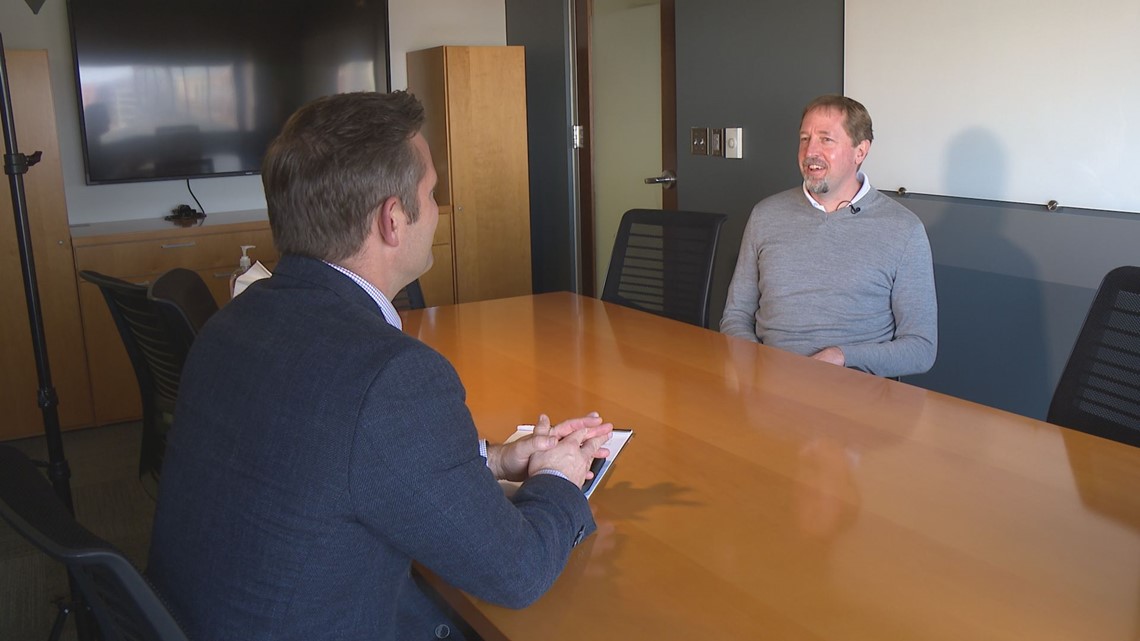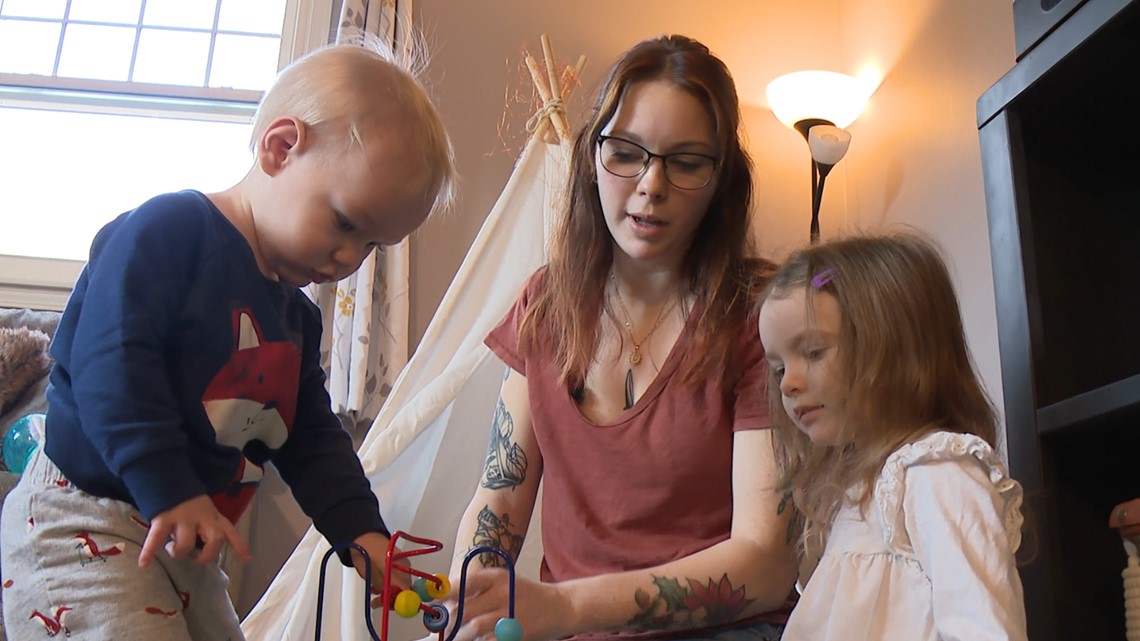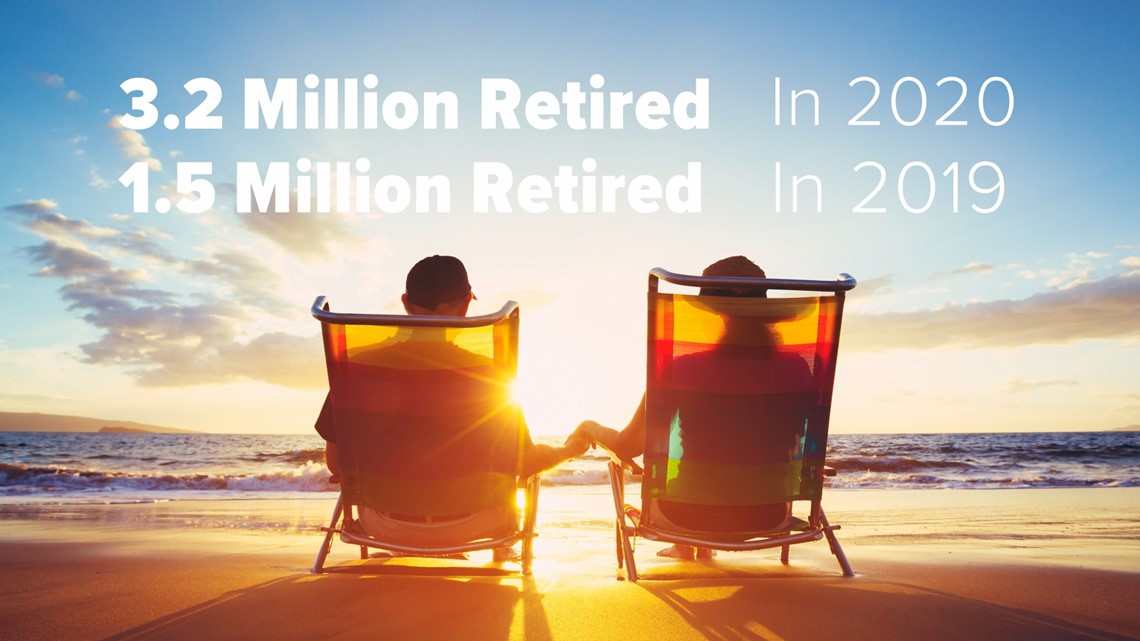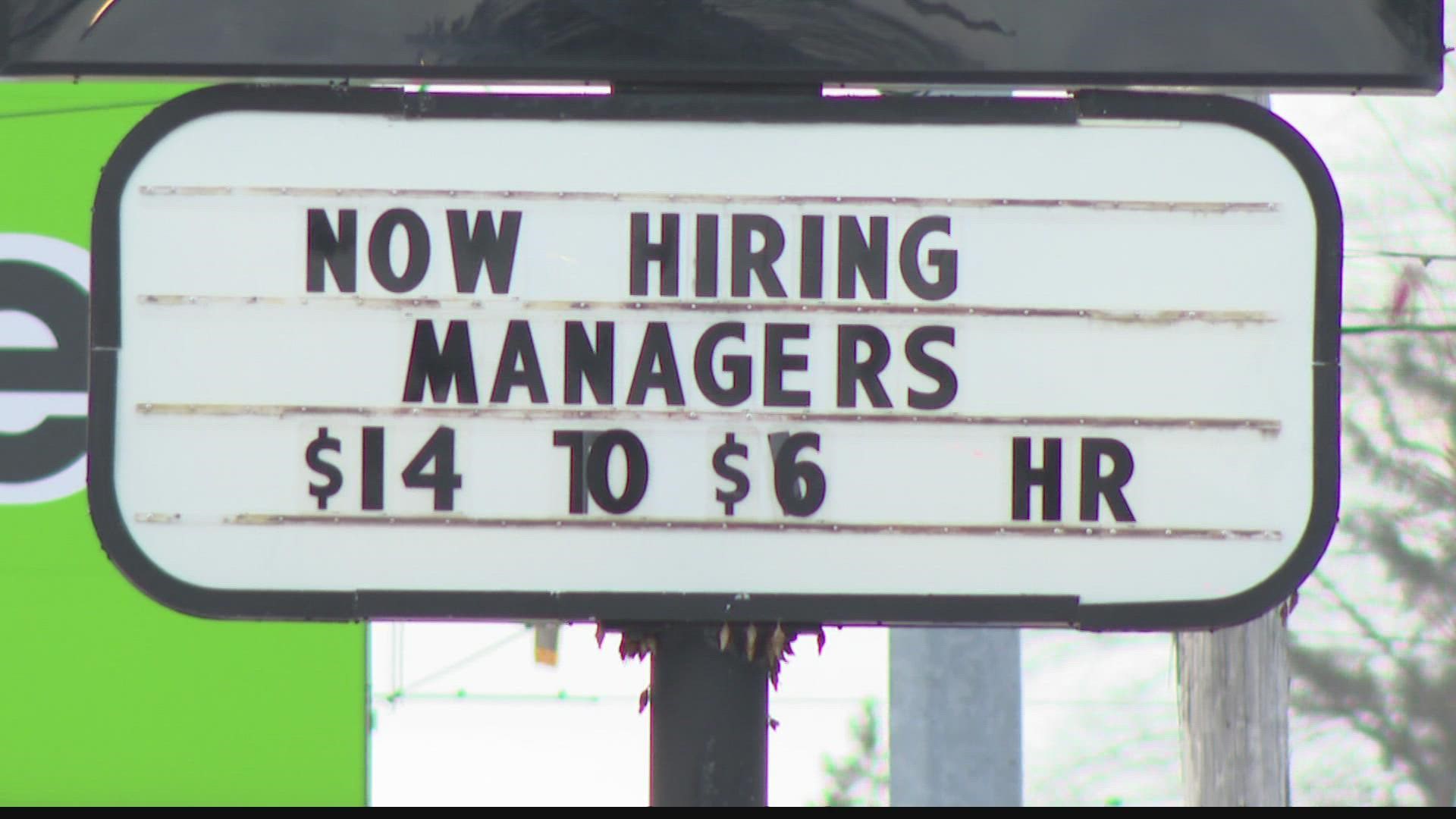INDIANAPOLIS — The signs are everywhere.
“Now Hiring”
“Workers Needed”
“Help Wanted”
At the end of the year, the U.S. Department of Labor reported about six million unemployed workers. At the same time, there were 11 million job openings.
If all of those unemployed people took a job, that would still leave nearly five-million positions unfilled.
So where did all the workers go?
13News asked professor Kyle Anderson, an economist in the IU Kelley School of Business who studies the labor market.
“We’re seeing it across the board,” he said. “There are a few things going on here.”
One reason, Anderson said, is that there are actually fewer people working.
“I think a lot of it just really goes back to the pandemic. There are a lot of workers not comfortable being in the workforce. We know child care is a big issue for a lot of households as well,” he said.


Makayla Wildey knows all about that.
“It’s hard to find child care and it’s hard to find jobs that pay what you’re worth now, especially with inflation,” she said.
Wildey lost her job as a corporate account manager during the pandemic. But she and her fiancé decided that rather than look for a new job, she would stay home with their young daughter and son who, at the time, was about to be born.
“I’ve always worked. I’ve worked since I turned 16,” she said. “So the concept of staying home didn’t sit very well with me at first. (But) it’s expensive to work and it’s expensive to not work and you’ve got to choose your battles. And if it’s the same, then I’d rather stay home with my kids.”


Parents and caregivers aren’t the only ones who quit their jobs
“We’ve also seen a lot of early retirements,” said Anderson. “People realized when the pandemic hit, ‘Hey I was getting ready to retire and we can do it and I’m not going back to the workforce the way it is.’”
About 3.2 million people retired when the pandemic hit, more than double the number who retired the year before.


But most of those people weren’t working fast food jobs. So where did all of the minimum wage workers go?
"That’s an area where there are a lot of workers missing (too),” said Anderson. “And I think part of it is, people used to work two jobs and now, as wages go up, ‘hey maybe I only need to work one.’”
What about unemployment benefits?
Did unemployment benefits really keep people from looking for a job?
“A lot of those extended unemployment benefits ended back in September,” said Anderson, “and we haven’t seen a ton of workers flooding back, so it’s a factor, but I think it was a small factor.”
When will the labor shortage end?
“I think we will start to improve over the year,” said Anderson. “But I think it’s just going to be very gradual. We’ve been dealing with it six to nine months. There’s no magic bullet.”
What other people are reading:
- IMPD: Officer shot in Fountain Square in 'serious but stable condition,' suspect in serious condition
- Ukrainian woman in the midst of war describes how her world changed overnight
- Indiana legislators looking to decide about online lottery
- Person dead after falling into trench at Shelby County construction site

